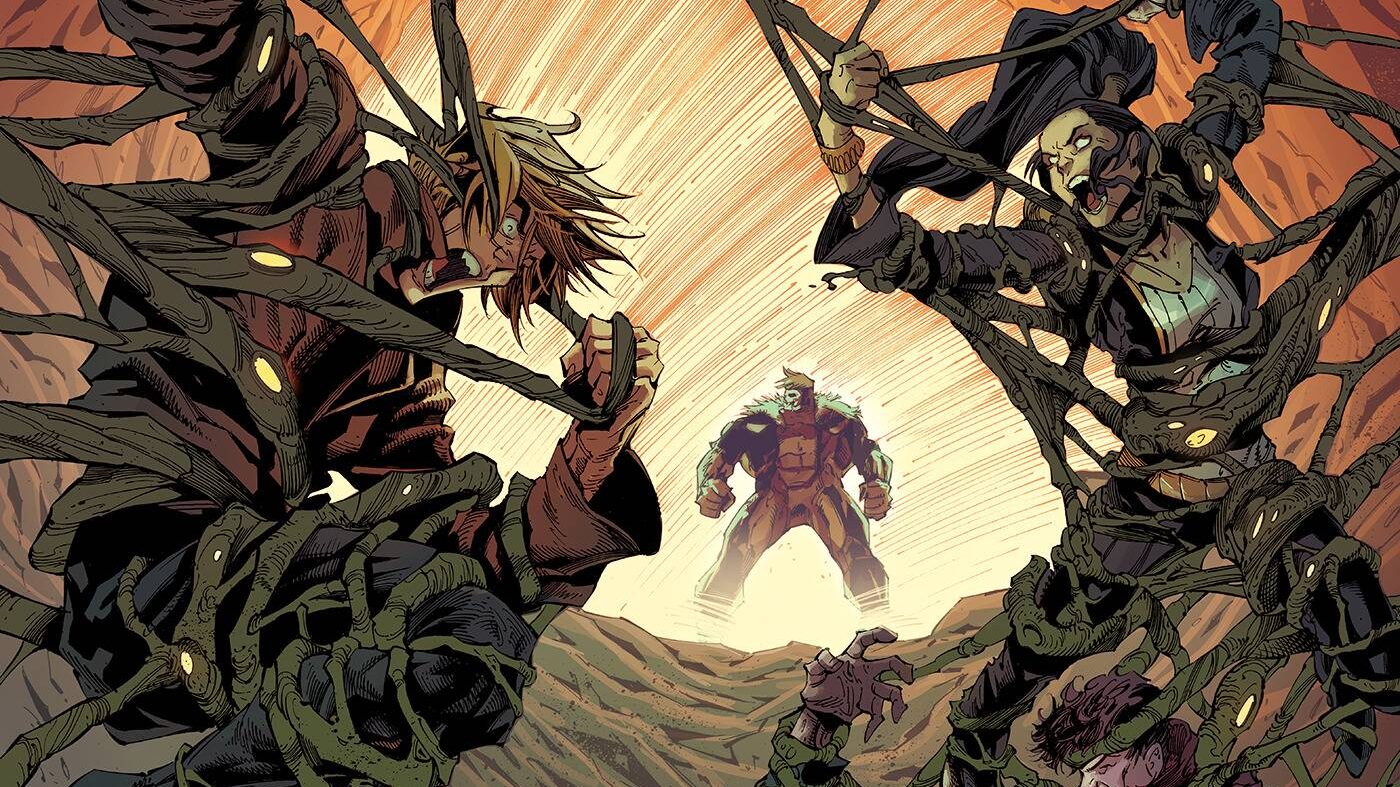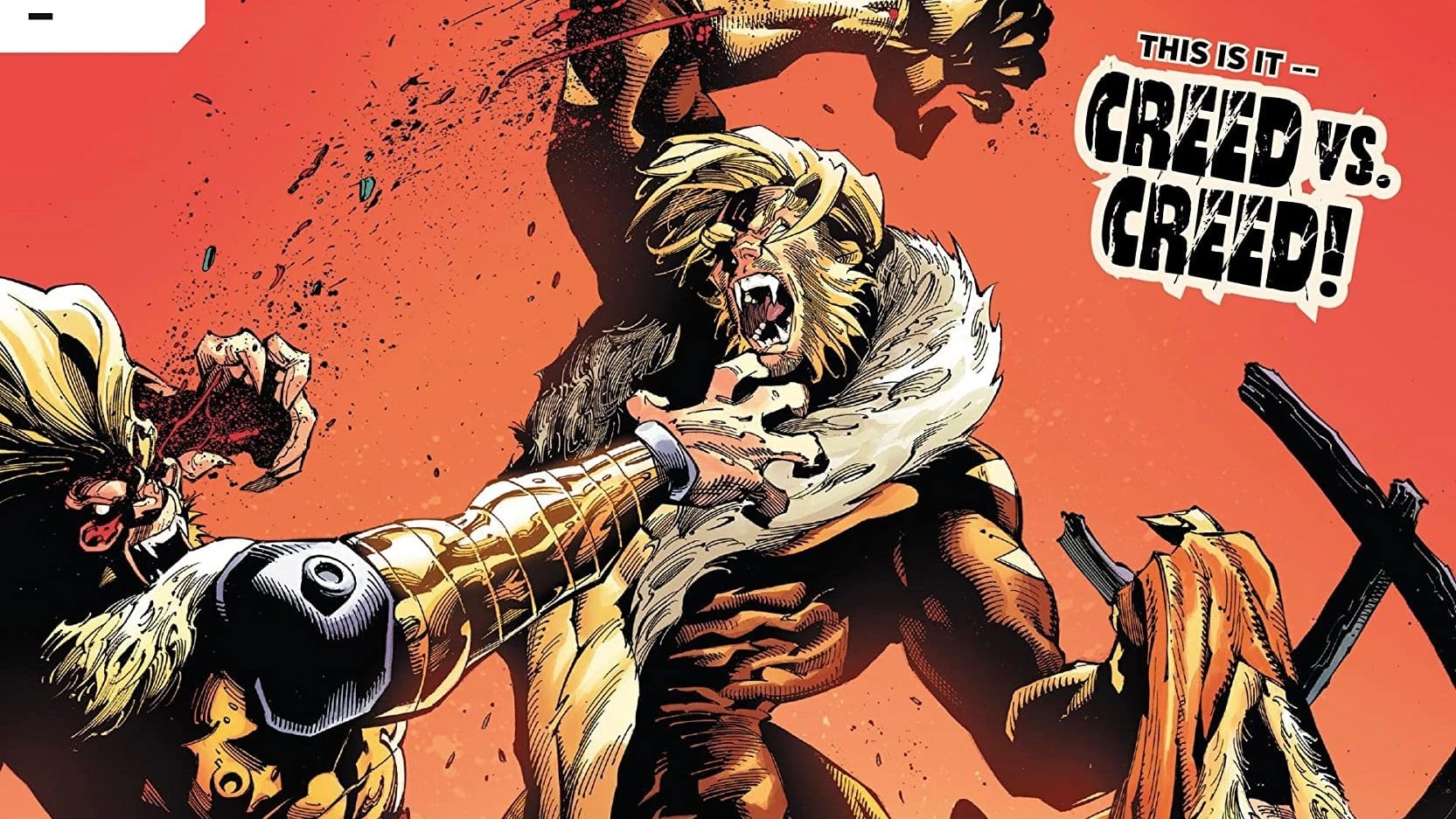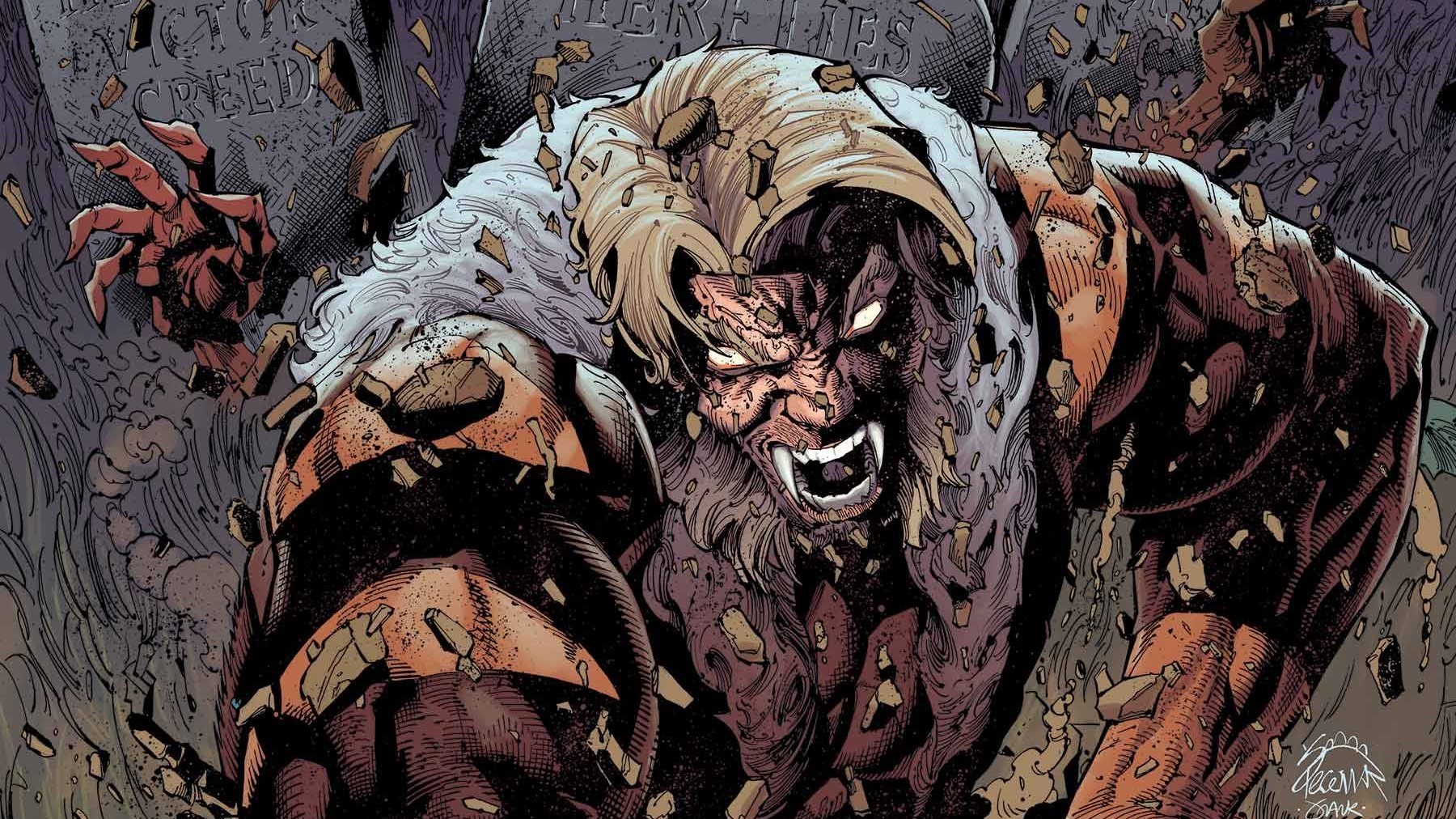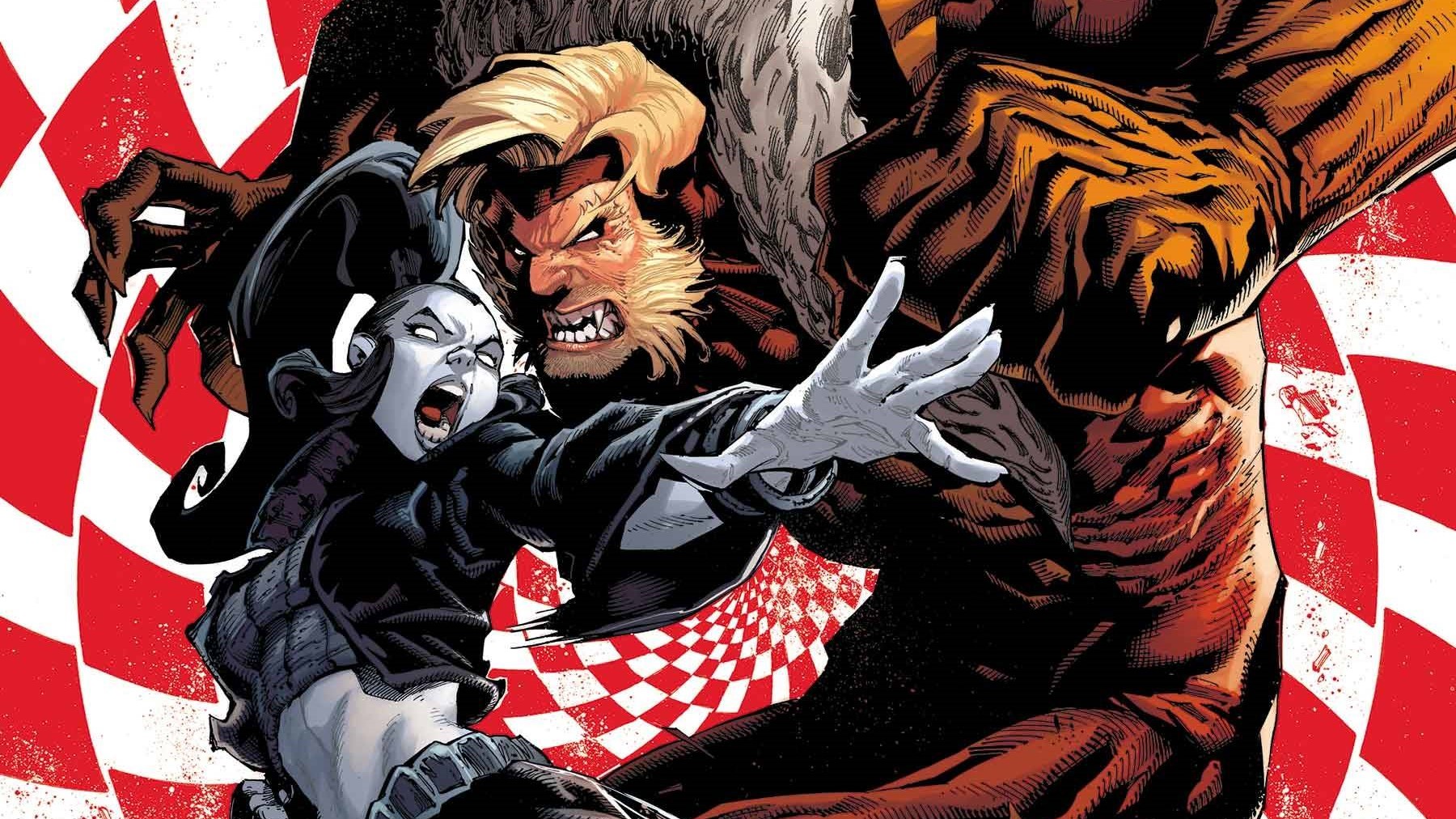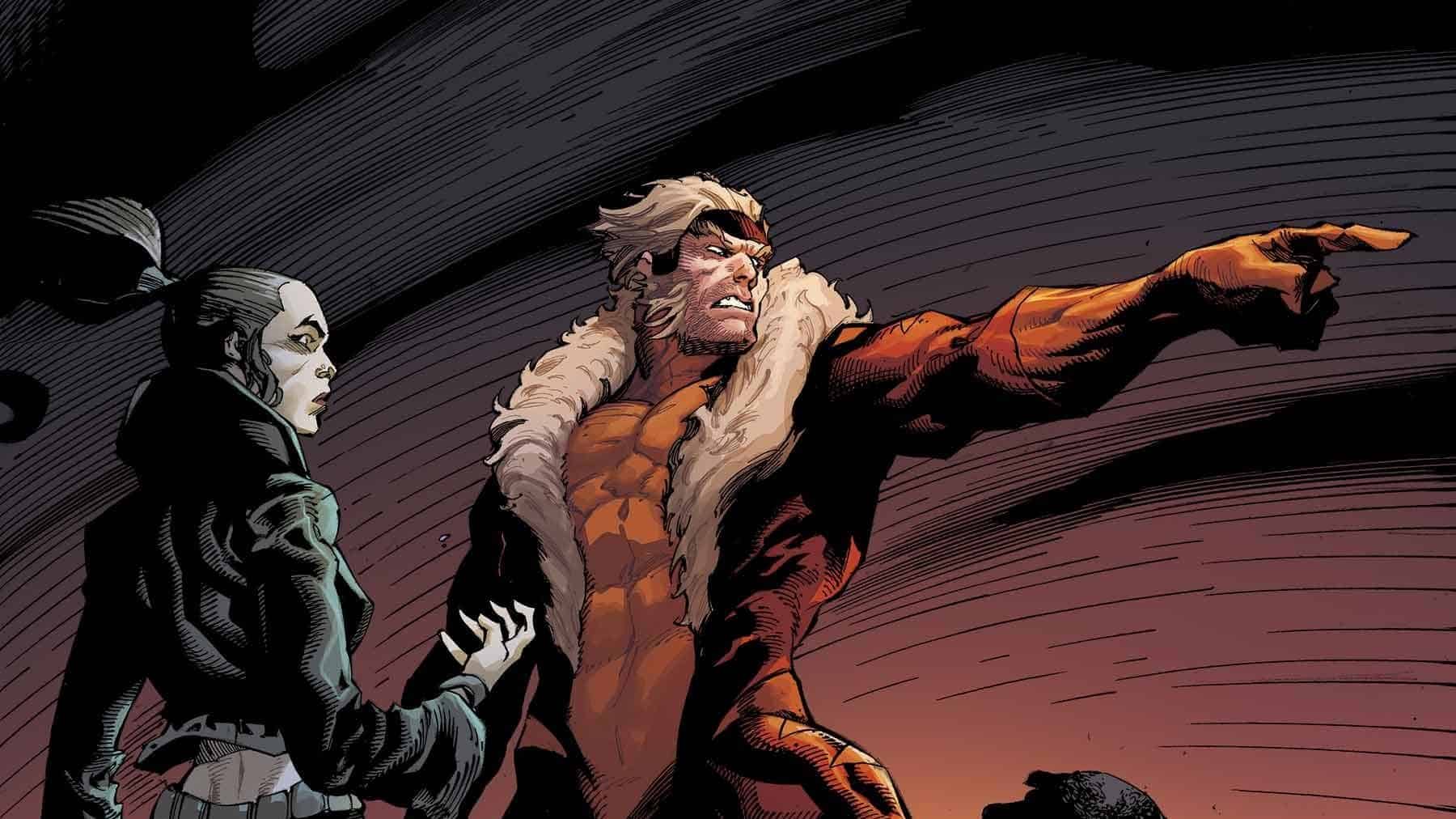Sabretooth was sent to the Pit. Then he made it a hell. Now it’s a prison, and Victor Creed is leading a daring escape. Will the exiled mutants be able to work together long enough to find their way out of the Pit? Or are they digging a deeper hole? And who’s their jailer anyway? Sabretooth #3 was written by Victor LaValle, penciled by Leonard Kirk, colored by Rain Beredo, and lettered by VC’s Cory Petit.
Jude Jones: Ernest Withers was many things. A friend and trusted confidant of many in the civil rights movement. A photographer and producer of iconic images, including and especially of a sanitation workers’ strike in 1968.
Withers was also one more thing.
For years, he fed the government names, faces, and locations of civil rights leaders.
He fed the Feds Dr. King’s whereabouts on the day of his murder on April 4th, 1968.
The state – the American state, the Russian state, the Krakoan state – in a desire to impose, maintain and grow control, will use every available tool in their arsenal, including abusing the sacred trust of friends and confidants.
Thus Sabretooth, imprisoned (unjustly!) for being inconvenient by the state, decides the best way to enact revenge on the state … is to mimic the actions of the state.
Lies and half-truths. Manipulation of friends and confidants.
Lots and lots of violence.
Sabretooth #3 is all about perspectives and perception: how we perceive ourselves, our decisions. How we perceive what is right and what should be punished.
And, intimately and profoundly, how we should perceive the difference between the state of Krakoa, a state we recognize and (sometimes) revere, and the state of Sabretooth’s mind, which we instinctively (and rightfully) recoil from.
Can Krakoa be so righteous if it’s in alignment with a mass murder? Or, more frighteningly, are the desires of a mass murder more aligned with our morals than we care to admit?
That the space between the “righteous” and the ravager is thin might be a surprise.
And then you remember that the righteous state hired a Black photographer to report on Black freedom fighters.
And then you cease being surprised.
Anna, how are you feeling?
Anna Peppard: I don’t think we were ever really meant to trust Krakoa–the island or the society built on/around/inside it. But we’ve often been encouraged to want to trust it, or at least believe in it. Excitement about this new era bred expectations that may or may not be fair but are what they are. We were promised revolution; it makes sense to consistently interrogate that promise. (That holds true for both reality and fiction.)
But while I remain wary of the world of Krakoa, I really like this comic book set in the world of Krakoa, which continues to surprise me in the right ways–making me think and ponder and sigh with relief because here’s this rare and wonderful comic book where every mutant matters and the promise and corruption of Krakoa are balanced more deftly than I would have thought possible before reading it.
So let’s talk about how we read it.
Privilege

Jude: Privilege necessarily comes with fits of blindness. You have to be blind to the ability–or, rather, inability–of others to stand where you stand; you’ve got to be oblivious to the conditions of those in your periphery; hell, you may not even recognize you have a periphery.
That’s the benefit of that privileged blindness: you can be shortsighted without penalty. And in the opening salvo, told by Melter from his vantage point, we see how privilege affects objective perceptions.
Melter, to be fair, has not had an easy life. Killing your parents accidentally (“accidentally”) is certainly traumatic. But lack of ease does not mean lack of privilege, and there’s a lot of privilege to be had as a white male raised in the suburbs. To expect the land to bend to your will. To believe that you can try and experiment with your destructive powers on living land.
To think that you could lie to the most powerful psychic in the world, the leader of this land, and there would be no cost to pay.
And of accidents: Three times in this tiny section of diction we see Melter refer to the destructive use of his powers as “a mistake” and “accidental”–results of him not knowing what he’s doing.
Three times I decided not to believe him.
Maybe he wants to believe his use of powers was accidental, but as Xavier read his mind and recognized his true intentions were more complicated, I believe his “mistakes “and “accidents” were anything but.
Privilege is not taking accountability for your actions. It’s not considering what collateral damage might look like. In this case, collateral damage is one panel with shadows of passed out–or passed away–mutants. It’s worth noting how these shadows have forms but no faces; how they’re individuals, and yet anonymous. How the collateral damage of his work–taking life from countless mutants–is only worth passing concern–one panel!–in his perception of events.
Privilege blinds you to the periphery. Melter and Xavier, then, should be quick friends, because Xavier, like Melter, is privileged. Xavier, like Melter, has hurt countless others under the guise of making “mistakes” and “accidents.”
Like Melter, eventually, Xavier would have to pay a humiliating price for his lack of periphery vision.
And yet, because of power dynamics, because privilege has levels, Xavier gets to stay on a council.
Melter gets sent to the Pit.
Anna, are you buying Melter’s innocence?
Anna: Yes and no. It depends on what “innocent” means. (Innocent of what, according to whom?) But on the topic of privilege: I’m going to cheat the format a little and jump to the end of the comic. Third Eye–who isn’t the voice of LaValle but is an original character created by LaValle–narrates part of the issue’s conclusion. Of Melter, he observes, “Makes sense he’d be drawn to the big man,” which in the moment means Sabretooth, but can also refer to Xavier.
Maybe Melter was imprisoned for intentionally roasting the landscape of Krakoa and unintentionally roasting his fellow Krakoans. But this comic also raises the possibility he was punished for trying to eavesdrop on a Quiet Council meeting. Melter wants to play a bigger role on Krakoa. By which he means a more powerful role. And he seems to think his physical power is an avenue to social power. If you’re not a privileged cishet white dude, you already know power’s more complicated than that. Sure, physical power can be an instrument of social power. But being strong isn’t always enough. Just ask Victor Creed.
Expecting power to be linear and logical extends from viewing the world through privilege. We’ll see whether Melter learns that–and what that knowledge will cost him.
Payback

Jude: Drifting away from “Krakoa State penitentiary,” on a raft made from the bodies of Magneto, Xavier, and if you squint, Sinister (Leonard Kirk is doing the Lord’s work here), the plan is hatched: the team will use Sabretooth’s ability to manifest physically on the island to recruit his old teammates to break him out.
No one, of course, follows this plan. No one trusts Sabretooth or his minions.
Which means everything is going exactly according to plan.
Anna: I really enjoyed the setup for the recruitment scenes, which made great use of caption boxes for dramatic and comedic effect. “Step Two: Find Vertigo.” Except Vertigo is never present or mentioned by the character supposedly searching for her. No one even pretends to follow Sabretooth’s orders and it’s great.
Jude: First, we see Oya and Nekra appear to Bling. It’s clear from Bling’s reaction that Oya and Nekra were presumed dead, meaning that no one, maybe not even the full Council, was aware of their sentence by Kangaroo court. It’s possible most people weren’t even aware they committed a crime! Again, that’s a pretty severe change from when Sabretooth was imprisoned (and everyone was made to know about it). It’s also notable that they believe they killed on their nation’s behalf, implying their actions may have been, if not state-sanctioned, in service of the state. Thus the hypocrisy of Thomas Paine’s lot in life–celebrated for creating standards for the nation, until he held the nation to those same standards–mirrors their lot–celebrated for providing security until providing that security became an incitement. Also, it’s touching, and dare I say accurate, that the two Black women would first seek out another Black woman to tell their story. That detail, centered In community and trust is profound and appreciated.
Anna: I loved that so much, Jude. It’s also notable that Bling subsequently seeks out the support of Iara Dos Santos/Shark-Girl and Marrow. Iara is also a woman of color while all of Iara, Marrow, and Bling are visibly different mutants. Allies can come from anywhere but for stuff that really matters, you need people you can trust. And part of trusting people is knowing they’ll understand you, through knowledge or experience or some combination thereof.
Jude: Next, we see Third Eye (re)appear to Mole. Last issue, we saw Mole try to tell all the “name brand” mutants what happened–how he saw an apparition from the Pit, and what that might mean. And last issue, we saw Mole ignored again and again and again. And since that time jump from last issue to this issue, Mole learned an important lesson: not everyone matters to the state. Some people are more equal than others (boy is Animal Farm ever prescient). Some people are invisible. And invisibility, especially when organizing, can be a strength. That the mutant nation, a nation of the discarded, has its own discarded proves mutants aren’t so far removed from humanity. Sadly. I love Leonard Kirk’s work here all around (again, the Xavier raft!), but his work with Third Eye here, making him human and plant and only using three colors (green, light green, and black shout out to Rain Beredo) and still giving him the ability to give off emotion through his eyes–masterful work. The four-panel exchange between Third Eye and Mole might be my favorite exchange in any comic, ever; without his art it wouldn’t have nearly the same resonance.
Finally, Madison Jeffries appears to Skin (and to himself). Madison finding himself feeling complete in another form feels purposefully allegorical (“like this is what you’re supposed to be; This is me, not that body”). And I’m glad, in a work where a lot of points are made directly and explicitly, that the beauty of the allegory was allowed to breathe a little more nebulously. (Further proof of allegory: look at the colors used to make the apparition–look familiar?) It’s worth acknowledging that some people do find themselves while being locked up; some people learn who they are and come back to the world, changed for the better. Not all. Not most, not even close. But some. Maybe that’s the case with Madison. We can only hope.
Anna: The scene with Skin and Madison may be my own favorite moment in this series so far. While there are always many ways to read anything allegorical, it felt very queer, and specifically very trans. I have no idea whether more will come of this. But gosh darn was this ever a nice moment. I hope lots of people tweet and share and talk about this scene on Wednesday (and Thursday, and Friday, and forever). I want to see it a million times everywhere.
Pit. Pain. Plans. Please…

Anna: We conclude where we began: in a Quiet Council chamber that becomes the Pit, where Melter rips the mask off one version of Xavier to reveal Sabretooth. We also get a return to the gory violence of issue #1, as Victor tears apart Melter’s body and impales him on a chair then proceeds to callously mock him as he brutally suffers. Pretty sure I said this in our first review, but it bears repeating: this is definitely the most cerebral Sabretooth comic of all time, but it’s still, at its core, a Sabretooth comic. Its cerebral-ness is enabled by the excess that’s always defined its title character. You can do almost anything with Sabretooth, a basically unkillable killing machine whose motives are always nebulous because who knows which version of him is really him.
The doublings here–of the Quiet Council and the Feral Council and of Xavier and Sabretooth–are also a nice way of encouraging reflection on those networks of power we already talked about. Power is relational, and so is goodness and badness. And LaValle and Kirk again remind us this is true in both life and stories. They also remind us that stories are another form of power. This can also be good and bad.
Jude: James Baldwin was many things; a shill for American imperialism was not one of them. He found freedom on the streets of Paris; he frequently–publicly–denounced the multitudes of prejudices in his own country. And yet! It’s eminently possible that even Baldwin’s denouncements of American power worked in service of American power.
The “soft-line” strategy, as per the (brilliant) data page, works in lockstep with Sabretooth’s manipulation of perceptions through sleights of hand (and mind). You don’t have to like–or even advocate for–the state. You’ll still be doing the state’s bidding.
Thus Baldwin’s denouncements of American homogeneity may have been used to further American homogeneity. At one level, that’s hard to comprehend; and at another it’s frightening, if not horrifying.
The original plan, set up by the boy and the beast (two parts of the Feral Council triumvirate) actually was to recruit Sabretooth’s old teammates to free him. But the Captain–Sabretooth’s thoughtful, conniving, and arguably most sadistic side–recognized two truths: those teammates would be useless, and these mutants wouldn’t recruit them anyway. Using the CIA as a template (as so many sadists do), Sabretooth’s plan is to let the other mutants spread word of their plight, to rally support not for himself, but for them.
Oya and Nekra might dislike Sabretooth–might hate him, and actively campaign against him, as Baldwin did the United States–and still might aid his cause simply by advocating for themselves.
Again: frightening and horrifying.
Now, could Sabretooth’s version of the CFF plan backfire? Maybe! For someone motivated by so much hate, I think Sabretooth underestimates how much a wide array of mutants, from the invisible to the very visible, actually hate him. Sympathy for Oya will not extend to him. But soft power is, to be fair, a proven strategy, executed by capitalists and communists (and killers) alike. And If it worked for the CIA (whom Sabretooth clearly has a fetish for), maybe it can work for him too.
Also, it’s not clear how much mental privacy or autonomy those mutants in the Pit have out in the world; they’d be wise to assume their thoughts, emotions, and actions are being monitored by the state.
I mean, Sabretooth.
Anna: My only (extremely minor) complaint about the data page incorporating the real-life history of the CIA is that it makes the CIA seem wiser and more competent than it actually is/was. Then again, this is Sabretooth’s version of history. So while the facts are technically true, it’s worth taking the presentation with a grain of salt. I’m sure someone, somewhere, will also complain that this doesn’t sound like Sabretooth’s voice. That’s valid, but I don’t personally care. LaValle is making Victor Creed more compelling than he’s ever been before. If we have to change him a bit to do that, I’m good with it.
Jude: When Melter enters the place he’s wanted to be (the council) and sees the man he idolizes (Xavier), I’m reminded of a scene from in the Matrix: they tried to make it a heaven but humans couldn’t accept a life without pain. He’s instantly suspicious (that hairy, claw-y hand on his shoulder didn’t help), rejecting the false reality outright–and subsequently pays a painful price for that rejection. Did Sabretooth scan Melter’s memories to create the scenario? Did Sabretooth recognize instinctively that Melter wouldn’t cooperate because he still “believed in the professor?” (The privileged, even when punished by the privileged, still show fealty to the privileged, don’t they?)
Finally, Third Eye (who, we should note, seemed to have an ability to move into the Krakoan world separate from Sabretooth’s control) continues to exhibit a dual (double!) consciousness: he’s aware of where his mind is at and of where his body is at. So aware of his body, that he can move himself, physically, inside the Pit–and sense others moving as well. (Nekra and Oya, instinctively holding on to each other for support and calm? Magnificent.)
Melter, too, begins to realize that his body and mind are still connected; that his body and mind can still move separately from this dream state; that his body and mind and powers are still effective.
And we see Melter, violently, intentionally (no mistake or accident), use his power to strike at Sabretooth.
Again, perception is meant to be taken on a sliding scale. It’s folly to take anything we see or hear at face value.
Anna: Agreed. When Melter attacks Creed, it’s a classic brave and reckless hero move, accompanied by stock heroic dialogue: “Killing you might kill all of us but it’s worth it to keep Krakoa safe!” (I’m paraphrasing, but not much.) By now, I should know better than to make predictions about where this story is headed. But I have an inkling Melter’s supposedly heroic sacrifice will either backfire or be fruitless. In any case, Melter’s actions speak, again, to privilege. What gives Melter the right to make this decision for everyone else? There’s a clear contrast presented here regarding different approaches to being powerful/fighting the power. Where the comic’s Black characters forge intersectional alliances, Melter tries to save the world in a heroic/selfish burst of flame.
Jude: So is this last page, showing Sabretooth being burned, just another layer of the dream? Is this actively happening in the Pit or just in his mind? And whose mind, exactly, is this happening in?
I don’t know. But I want to know. I’m intrigued. Compelled. And that is why I feel comfortable saying Sabretooth, even with two issues left to go, is unequivocally a masterpiece.
Thus, with bated breath, we take in the end of the story, knowing that the next issue will upend our perceptions yet again.
X-Traneous Thoughts:
- I’m (Jude) writing this with COVID brain, so apologies if my writing is a little disheveled. Wear your mask, get vaccinated and boosted.
- Even though Nekra’s skin is chalk white and Bling is, well, Bling, they’re still Black. Black is a skin tone and an ethnicity and a culture and this is not a debate. It’s a statement of fact. Thank you for coming to my TED Talk.
- That time moves differently in the Pit isn’t surprising–all isolated spaces in the X-Men universe (the World, the Vault) have differing time mechanics. It’s still worth noting that we’re now, chronologically, right before the Gala, which is a few weeks/months past where we were last issue. Time flies when you’re having fun. Or in hell. Or both.
- In Inferno, we learned that since Krakoa and Warlock merged, Krakoa hasn’t needed to feed on mutants psychically for sustenance. So when Xavier notes that Krakoa drained the life force from Melter and other nearby mutants after Melter’s attack on the island, Kraroka’s actions were either a) involuntarily to replenish itself, b) retaliation for being attacked or! c) weren’t Krakoa at all, but Xavier using Krakoa as a patsy.
- The liquid Melter’s powers leave behind reminds me of orange soda. Now I’m thirsty.
- Fun fact since I saw Louis Armstrong’s name: did you know Jazz music was prohibited in New Orleans Public Schools from 1922 until 2022? Well, now you do!

